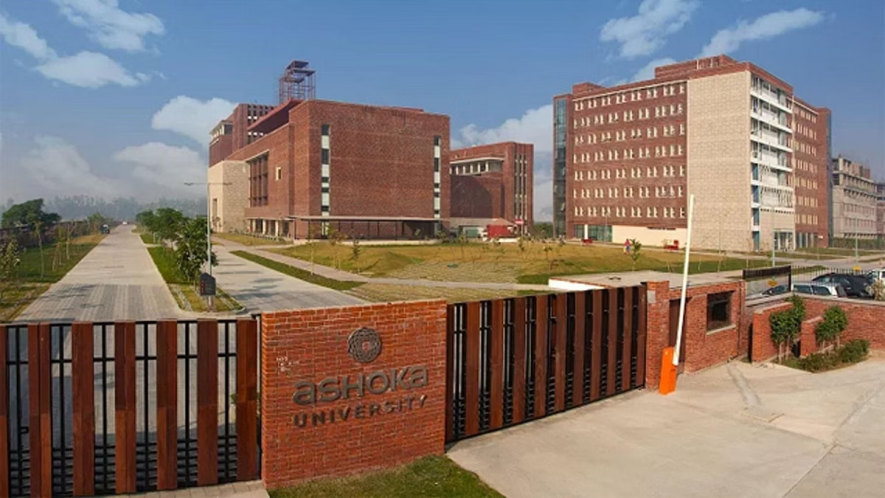Poll ‘Manipulation’ Paper: Ashoka University Scholar’s Resignation Sparks Academic Freedom Debate

New Delhi: In a development that has sparked a renewed debate on academic freedom and political influence, Sabyasachi Das, an assistant professor of economics at Ashoka University, has tendered his resignation from the premier private institution in Sonepat, Haryana. This follows the uproar generated by a scholarly paper about the 2019 election results that he authored.
Multiple faculty members confirmed to The Wire, the resignation of Sabyasachi Das, although Ashoka University has issued no official statement yet.
According to a report published in The Wire, The economist came into the spotlight due to his research paper that proposed the potential for electoral 'manipulation' in the 2019 Lok Sabha elections, during which the incumbent Bharatiya Janata Party (BJP) secured a more substantial victory margin compared with 2014. While Das's study concentrated on only 11 constituencies, his findings sparked vigorous discussions on social media platforms and faced criticism from BJP leaders.
Das's paper, 'Democratic Backsliding in the World’s Largest Democracy,' published on July 25, 2023, examined specific methods and impacts within a limited context. In response to media inquiries about his resignation and the controversy, Das replied, "I am not engaging with media at this point. I am focused on getting my paper published before contemplating media engagement."
On August 1, Ashoka University released a statement disassociating itself from Das's paper, expressing dismay over the speculation and discussions it had generated. This public distancing of the university from its faculty's research ignited further controversy.
The resignation has ignited a debate about the academic environment in India. Ashoka University's stance, particularly its decision to distance itself from Das's research, has drawn criticism from students and academics alike. This is reminiscent of the university's handling of the departure of its former Vice Chancellor Pratap Bhanu Mehta in March 2021, who stepped down following his media writings on the politics of the ruling BJP. Critics have labelled Ashoka's approach as an example of 'democratic backsliding in academia,' said The Wire’s report.
The abstract of Das's paper outlined its focus on irregular patterns within the 2019 general election in India. It aimed to identify whether these patterns were a result of electoral manipulation or precise control exercised by the incumbent party. His findings suggested potential targeted discrimination against India's largest minority group, Muslims, facilitated in part by inadequate monitoring by election observers. The paper's conclusions were described as worrisome for the future of democracy.
Das’s paper triggered a debate with former civil servant MG Devasahayam and psephologists-politicians like Yogendra Yadav praising it for “drawing attention” to anomalies in the election, and others like Nalin Mehta, author of a recent book on Modi and the BJP, questioning his methodology and findings.
BJP leaders made scathing comments, and MP Nishikant Dubey spared neither Das nor Ashoka University, “It is fine to differ with the BJP on matters of policy, but this is taking it too far…how can someone in the name of half-baked research discredit India’s vibrant poll process? How can any University allow it? Answers needed- this is not good enough a response.”
According to The Wire report. Amit Malviya, the convenor of BJP’s IT cell, said, “The research paper by Ashoka University’s Sabyasachi Das presents several datasets and dozens of charts as ‘evidence’ of what he calls ‘significant irregularities’ and ‘electoral fraud’. These are big claims. Does the evidence stack up? The answer is No…”
Das's academic background includes a PhD in Economics from Yale University in 2015 and a postdoctoral fellowship at the Indian Statistical Institute, Delhi. His research interests encompass political economy, public economics, and applied microeconomics, particularly emphasising group inequalities arising from democratic processes.
The impact of Sabyasachi Das's resignation and the controversies surrounding his research are expected to resonate throughout academic and political circles, raising important questions about academic autonomy, freedom of expression, and the delicate relationship between scholars and their institutions.
Get the latest reports & analysis with people's perspective on Protests, movements & deep analytical videos, discussions of the current affairs in your Telegram app. Subscribe to NewsClick's Telegram channel & get Real-Time updates on stories, as they get published on our website.
























